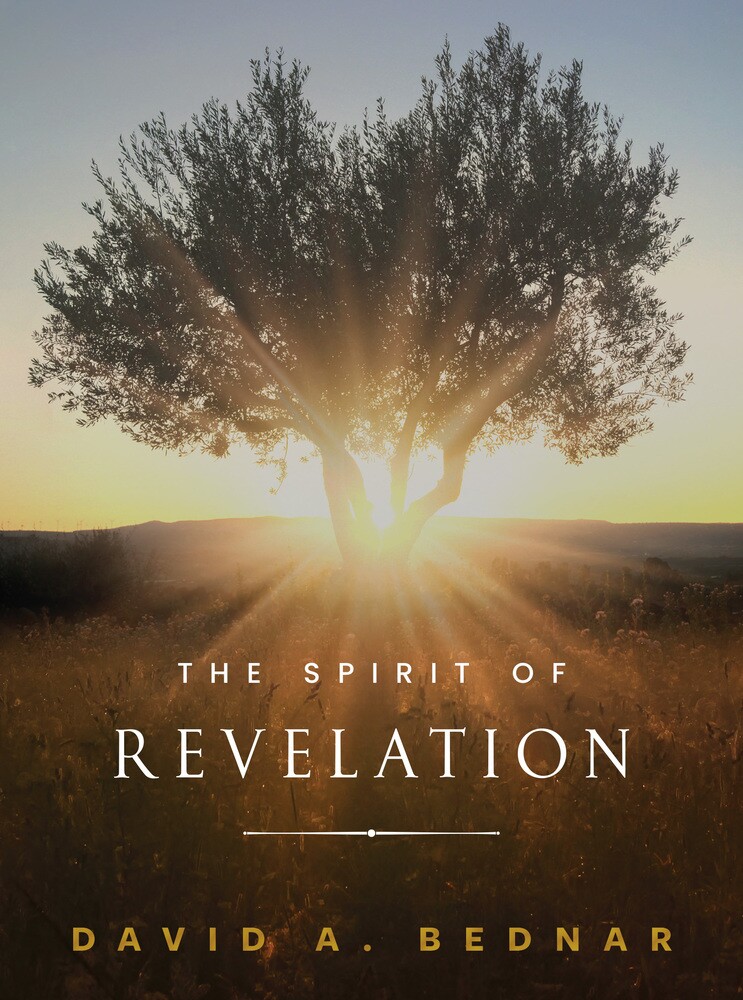Have you ever sat through a testimony meeting or a Sunday School lesson where others are tearfully sharing their beliefs and experiences—but your eyes remain dry? I’ve often found myself in these situations, wishing I could at least empathetically cry. Crying seems to be such a sincere way to express spiritual things.
Frequent clarification has reiterated the difference between emotion itself and spiritual experiences, such as this point of guidance given to missionaries a while back. President Howard W. Hunter said, “Certainly the Spirit of the Lord can bring strong emotional feelings, including tears, but that outward manifestation ought not to be confused with the presence of the Spirit itself.”
Still, some of us wish that our tears and feelings would flow more freely. I’ve often found myself reaching heavenward, eager to be quenched by spiritual sensations, only to come away thirsting for any feeling at all.
Recently, I took another look at the two recorded verses where “Jesus wept.” What I learned completely reframed my thinking on the association between emotion and spirit.
The first is John 11:35. “Jesus wept” when His dear friend Lazarus died, and the people watching were recorded to have remarked, “Behold how he loved him!”
The second is 3 Nephi 17:20–22. “He wept” when blessing the Nephite children, saying to the crowd, “Blessed are ye because of your faith. And now behold, my joy is full.”
One, a moment of deep sorrow.
The other, a moment of profound joy.
Both events were, no doubt, accompanied by the Spirit. These were miraculous moments. A man rose from the dead, a people rose from darkness. But I don’t think that’s why Jesus wept.
I think He wept because of how He felt about these people.
This realization changed my perspective in two ways:
First, one of the most central elements of God’s plan for us is relationship—connection with Him, connection with each other. Human relationships are replete with deep emotion, from sorrowful grieving to exuberant joy. When Lazarus died, Jesus wept despite knowing Lazarus would soon live again. He cared deeply about Lazarus and his sisters. He was compassionately moved because of that relationship, sharing in the grief.
If I ever find myself struggling to feel the gospel, without fail, I realize it’s because I’ve lost sight of the why of the gospel—the holiness of human connection. If I want to feel the truth of what Jesus taught, I only have to look as far as the people I love.
Second, while we can have spiritual experiences with those we love, emotion itself is not evidence of the Spirit’s influence. The Holy Ghost is as much an intellectual companion as it is an emotional companion. Prophets have taught this across millennia:
“The Spirit of the Lord… enlarge[s and] enlighten[s] understanding” (Alma 32:28)
“The Spirit searche[s] all things, yea, the deep things of God” (1 Corinthians 2:10).
The Spirit unfolds the mysteries of God (1 Nephi 10:19).
“[T]he Holy Ghost… bear[s] record of…God the Father, and also the Lord Jesus Christ” (Ether 12: 41).
We are “sanctified by the reception of the Holy Ghost” (3 Nephi 27:20).
“[The] Spirit… lead[s] to do good [and] shall enlighten your mind” (Doctrine and Covenants 11:12-13).
“[T]he Holy Ghost, even the Comforter… show[s] all things, and teache[s] the peaceable things of the kingdom.” (Doctrine and Covenants 39:6).
The Spirit “inspires” and “invite[s] and entice[s] to do good continually” (Moroni 7:13).
The fruits of the Spirit include feelings of “love, joy, peace” (Galatians 5:22–23) but those are the fruits—the results. The role of the Spirit, the inner companionship that leads to expressive results, is to facilitate active change. The Spirit facilitates clarity and understanding.
Jesus wept because of love, but He also wept because He understood.
Now, when I come away from my Church meetings worried that I didn’t feel anything, I ask myself what I thought. What connections did I make? What did I learn? How did my perspective change? Did I come to understand something, or someone, better? Do I see my Savior with new eyes?
I’ve heard some people compare the Spirit to water or air. If you asked a fish to describe water or a bird to describe air, it’s unlikely that either creature could do a very good job (though any coherent conversation with a bird or a fish would be fascinating indeed). Being perpetually immersed in an essence makes it difficult to discern. A splash or a gust of wind can remind you of the power of water or air, but most of the time, those elements are just there, imperceptibly, miraculously facilitating every microscopic function of your mortal body.
More often than not, I think, the Spirit is just there, “in your mind and in your heart” (Doctrine and Covenants 8:2), silently and sweetly conducting thoughts and feelings of goodness. And I think that’s marvelous.



